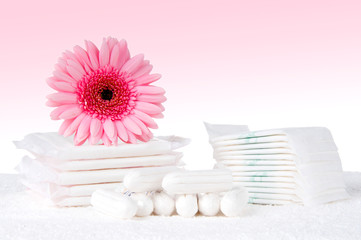We Need More Feminine Hygiene Products, Period.
Grossmont’s AAUW pushes for more access to feminine hygiene products in campus bathrooms.

May 10, 2019
As if it isn’t difficult enough to live with the stigma of having a menstrual cycle, women often have to pay
unreasonably high prices for tampons, pads and other menstrual related products.
While it may not be as much of a problem for those who are able to afford them, many women are unable to afford tampons and pads, which then limits their access to such necessary products. According to a Reuters article, “A survey of low-income women in a large U.S. city finds that nearly two-thirds couldn’t afford menstrual hygiene products such as tampons or pads during the previous year.”
Being unable to access basic health products is an issue that needs to be fixed. Menstrual cycles are a natural part of life, and women deserve to have equal access to any hygiene products necessary. While many women have little to no access to pads and tampons, Grossmont College’s American Association of University Women is looking to change that on campus. Grossmont offers pads and tampons either at the student health services desk or through Gizmo’s Kitchen, both of which are located in building 60-130. While those services are great and free, students with a valid Grossmont ID card may only use Gizmo’s Kitchen once a week. At the health services desk, a student must ask for the pads or tampons, which to some may seem embarrassing, even though it
shouldn’t be at all.
However, Grossmont’s AAUW is trying to change the game. The members have turned in a request for tampon and pad exchange boxes to be placed in women’s bathrooms on campus.
“The goal of that would be for girls to come and if they had extra pads or tampons that they maybe wanted to leave for other women, they could put them there, and if you ever found yourself in a time of need,” said club president Maya Clark.
Having such boxes in our campus bathrooms would be of great convenience for students on the move and for students who may not have access to pads and tampons for various reasons, including financial ones.
“Pads and tampons are really expensive; that’s not something everyone will necessarily have on hand, so it’s something that is helpful for women who aren’t as financially stable as they would want to be,” Clark said. “It’s
something that speaks to, obviously, the outrageous costs of these things, but is also just women helping women.”
The exchange boxes are a way for women on campus to help those who may need it as well. “It raises awareness to the fact that this isn’t something that’s always accessible to everyone,” Clark said.
It is a great and inclusive idea although, “It’s not an idea we came up with ourselves,” Clark said. “It’s called ‘End Period Poverty,’ and it’s something that has been done in other places too. One of our officers actually, back when she was going to school in Brazil, did that as a project and it was actually very successful. People were leaving pads and tampons, and people were using it.”
Perhaps the installation of these exchange boxes will help in making it easier for women on campus, because although the Health Services Center and Gizmo’s Kitchen provide feminine hygiene products, not everyone may be comfortable using those resources.
In regards to the exchange boxes, Grossmont students Nay Damlong and Jessica Castaneda support the notion. Castaneda said she would prefer to use the exchange boxes because she’d feel more comfortable.
“I thought they would have some , but when I go to the bungalows, I don’t see any and when I go to the ones in the bathrooms I don’t see any. So it’s making us feel like, ‘Oh do we have to go to the bookstore or do we have to go to a different store to get it, to get that resource?’” Damlong said.
With the addition of the exchange boxes, many students will have access to feminine hygiene products in any bathroom when it’s most convenient for them. It would also give them privacy and take away any discomfort they may have.
All it would take to provide these resources around campus is a steady cycle of give and take, with the hope it doesn’t lag— which is a concern.
Damlong expressed concern over the availability of the products, asking if there would be a limit. “What if it’s there and free, and people are going to take advantage of it and what if those who really need it come in and it’s not
there?” Damlong asked.
The concerns are valid and plausible, but with the success the AAUW has seen from one of their own member’s experience, the exchange system worked well— with people giving just as much as they were taking.
Grossmont is a growing campus with many bright students and the addition of a system to support the women of Grossmont adds to the expansion of inclusion the campus has been seeing.
While in theory, one may assume the boxes can just be placed in the bathrooms by the members of the AAUW, but they cannot just be added to the bathrooms instantly.
The initiative must be approved by the Facilities Committee before the exchange system can be implemented.
“If it doesn’t get approved, we’re probably just going to stage a mutiny,” Clark said lightheartedly.
“If it does get approved by the committee, they should probably be installed in the Fall semester. So, it’s not something we’re probably going to see this year, but it’s our legacy.”













